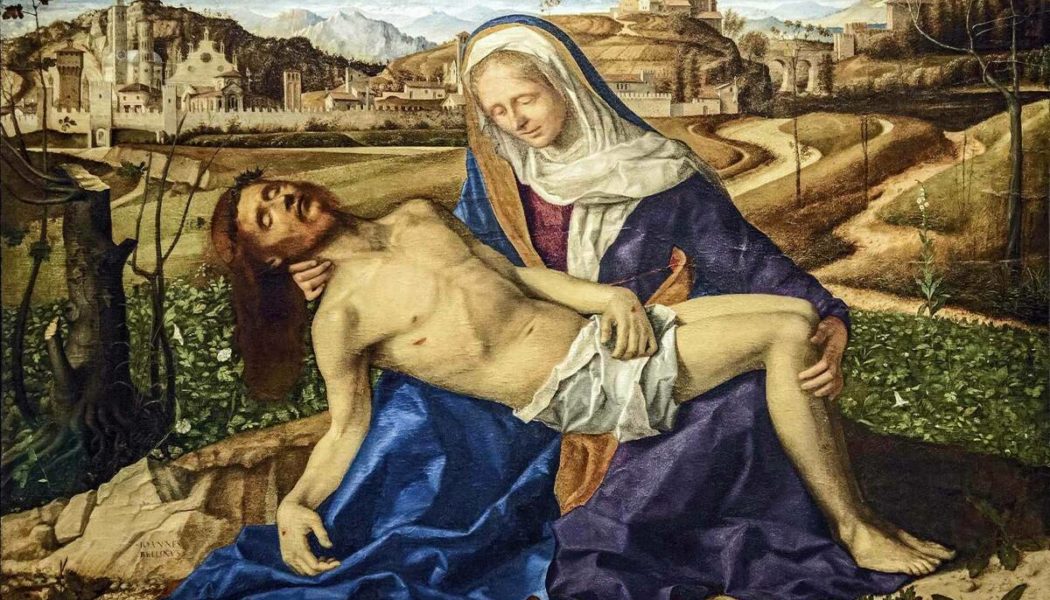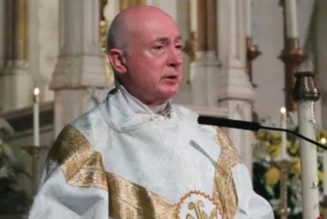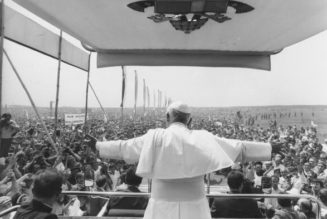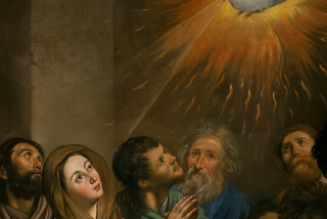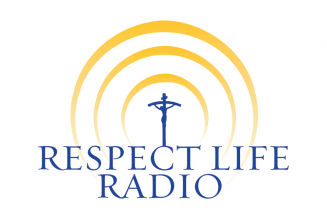
For the heart, life is simple: it beats for as long as it can. Then it stops. Sooner or later, one day, this pounding action will cease of its own accord, and the blood will begin to run towards the body’s lowest point, where it will collect in a small pool, visible from the outside as a dark, soft patch on ever whitening skin, as the temperature sinks, the limbs stiffen and the intestines drain. These changes in the first hours occur so slowly and take place with such inexorability that there is something almost ritualistic about them, as though life capitulates according to specific rules, a kind of gentleman’s agreement to which the representatives of death also adhere, inasmuch as they always wait until life has retreated before they launch their invasion of the new landscape.
—Karl Ove Knausgård, My Struggle, Volume 1
I have a very distinct memory of my eldest daughter, whom we call Nonnie, and her younger sister, Bel; they were ages 4 and 2, respectively. It happened something like 22 years ago. I had some sort of gastrointestinal illness with all that goes with that, and I was lying on the couch writhing in abdominal pain and discomfort, not feeling well at all. The girls got their toy doctor’s kits out. Bel had the thermometer and a blood pressure cuff and was standing at my shoulder. Nonnie stood at my abdomen; in one hand she had the reflex hammer. In the other she held the diaphragm—the listening part—of the stethoscope. The stethoscope hung around her neck, not in her ears, just around her neck. Nonnie placed the diaphragm of the stethoscope on my stomach for a few seconds . . . Then she said, “All better daddy?”
It was the cutest and sweetest thing ever. Immediately, my pain and abdominal discomfort was gone. I mean, I still had the discomfort, but it was now infused with something else. The discomfort was different. It was now tinctured with the love of a four-year-old. It was transformed by my daughter’s sweet concern, by the love that she had for me, and by her desire that I not be distressed. She had no clue what the stethoscope was. She had no clue that a stethoscope was not a tool of healing, but a tool of diagnosis. But it represented for her a tool of comfort and healing, and her concern for me passed through that thing. All of the pathos of it was gone, transformed by love; transformed into love. That feeling lingered throughout the day, and it lingers right up until this moment.
We are our bodies. We are these fleshy things that are exquisitely unique. Some of us are tall, others short; some of us have more muscle, others of us do not. Some of us are wildly intelligent and lazy, and thus do not achieve. Others of us are moderately intelligent, but work hard and change the world. Some of us have an artistic eye or an aesthetic eye and we see beauty everywhere; others of us are creative with words, or with paint, or with stone. No two of us are exactly alike, except for identical twins, but even there they will have unique experiences of the world, and thus have different memories of events—even the same event.
Some of us will live into our 90s; others of us will die tragically at young ages. Not a single one of us is perfect, and our non-perfections also differ. We are all imperfect in different ways. I am going deaf; some of you will never experience deafness. Some of you were born with obvious impairments; for the rest of us, our impairments are hidden and only manifest themselves later in life. For most of us our impairments lurk in our genes, hidden away. These hidden impairments may or may not cause us disease. All of us have something in our genomes that predisposes us to sickness and even death. These predispositions may not be the thing to kill us; but rest assured, something will kill you. I hate to bring you this news, but someone must!
But these bodies—with all of their differing talents, skills, abilities, creativities, and frailties, weaknesses, and proclivities toward death—these unique bodies are the bodies we have.
The Jewish and Christian religions are very embodied religions; we do not really think of ourselves as spirits or minds encased in flesh, but we think of our embodiment as essential to our being. For us Christians, the importance of the body is captured in Christianity’s single most important doctrine—the Resurrection of the Body. In the Christian religion, what we believe is that these unique bodies that distinguish us from one another are the bodies that will be resurrected. Let me unpack that a bit with a few examples. These are all sad examples. As mentioned, I am a medical doctor, and most of what a medical doctor sees sits adjacent to sad things. So, I warn you now, expect a bit of sadness; but I hope to bring you a tincture of something else, that will transform it all.
Things Befall Us: Three Stories
Because we are bodies, things befall us; there are many ways that our bodies can fail us. We can be attacked from the outside by the environment around us—whether that be through viruses, bacteria, or fungi, or whether it may be things in nature like rocks or storms or tsunami’s or things like cars, or bullets. Or our bodies can betray us from the inside. It is this latter group—the frailty of the body—itself that I want to attend to.
Story 1: Trivial Things Befall Us
Sometimes something genetic wells-up within our bodies. For instance, I hear things that you do not hear. It is never silent in my world. I don’t recall the first time I heard the ringing in my ears, but I was along about 13 or so. I would hear something like the air conditioner running, but behind the low rumble of the machinery and the air flowing through the ducts, I would hear something else. I would mostly hear it at night while lying in bed, when everything was quiet. At first, I thought it was because I grew up working on a farm, a dairy farm, in which there was very loud equipment. I began to think it was just the lingering hold-over from the day’s work; perhaps it was just my ears still hyperactive from the loud sounds of the air pump, or the tractors.
As a teenager, I also began to notice that my great grandmother, and all her children and even her grandson—my dad—were going deaf as they aged. I also found out that one of great grandmother’s daughters had something called Ménière’s disease—Ménière’s disease is a disease that is caused by increased pressure in the inner ear causing severe dizziness (the inner ear is part of the way the body orients itself in space and maintains balance); it also results in hearing loss. This happened to my great aunt when I was in medical school, and in talking with my great aunt, she mentioned that she also had had a ringing in her ears. When I talked to my father, who was also losing his hearing, he mentioned that he also had ringing in his ears. And at the time of his death, he was increasingly going deaf. While I don’t have Ménière’s disease, my sister does. My other brothers also have tinnitus or ringing in their ears.
In medical nomenclature, I have tinnitus, a constant persistent ringing in my ears. I have had the tinnitus for so long, I have forgotten what silence is. It is there when I go to sleep; it is there when I wake up. It is here even as I speak to you now. (As I write this paper). Some days it is so loud, that I can hear it over everything else. Other days it keeps me up at night. In fact, at one point it made me very anxious because it is never silent, especially when trying to go to sleep at night. I would grow so angry because it was so loud only making matters worse. It would even distract me from my attempts at prayer or at meditation. It is annoying!
I finally sort of made peace with it when started incorporating it into my prayer and mediation. I began to listen more carefully to the pitches—there are several of them. ears. There is a high-pitched sound in the highest register; there are several other lower pitches, as well. If I am very still and quiet, I can even hear a slight pulsing of the sound with each beat of my heart. Where once I would grow angry and anxious by the sound being there, now I will hone in on one of the pitches and devote my attention to it, listening carefully to it trying to live into its different qualities. I have learned to become comfortable with it. I have done this for so long that to some extent it is almost soothing because I have grown accustomed to it. The ringing is now my constant companion, though it is at times an annoying companion. Where before I took it to be an intruder, it has now become part of me.
Now, for the most part, this is a trivial matter. Yet, there is a small tragedy in all of it. I love to sing . . . and I sing by ear. I never learned to sight-read music. I sing tenor and I am very good with harmonies. In fact, I find church to be very boring, unless I am singing in the choir. Because I sing by ear, I need to hear the other voices and my own voice in order to do it right.
But as I grow more and more deaf, I sing more loudly. And from time to time, my church choir director looks at me and she gestures to me that I need to bring the volume down a bit, because I am overpowering the other voices in the choir. Now, I am worried that I will no longer be able to hear myself harmonizing. I worry that I will become a worse singer. What happens when I can no longer sing because I can no longer hear the other voices or my own?
Now, in the grand scheme to things, my tinnitus and my going deaf is not such a terrible tragedy. It might seem trivial, but trivial things like this have lasting effects. The ringing in my ears is part of my very identity now that it has been with me for over 40 years. I would not know how to be in the world without it. The ringing in my ears is both annoying and soothing at the same time. But compared to many others whose bodies are failing, this is a rather trivial thing, this ringing in my ears. Other, more serious things befall us, which brings me to the second story.
Story 2: Serious Things Also Befall Us
I have a brilliant friend, whom I will call Gary. He held two PhDs one in theology and another in cultural anthropology. He was one of the most creative and interesting thinkers I have ever known. He was a gifted teacher and writer. He was also the kind of guy that you wanted to sip good whiskey with; we spent hours together sipping good bourbon or scotch, talking about science, technology, culture, and religion. Gary lived in Arizona and taught at a university there. He had an interest in desert spirituality; he loved desert landscapes, but he found solace in the fierce landscapes of Arizona. Gary found beauty in these harsh parts of the world, and marveled at the fact that life could find a way to exist in such stark places.
Back in the fall of 2020, I had invited Gary to be a visiting professor at my university for the 2020-2021 academic year. You will remember that 2020 and 2021 was COVID Time, so Gary was not actually in St. Louis; he taught a grad seminar at SLU through Zoom from his home in Arizona.
In December of 2020, Gary had mentioned that he had had a cough for several weeks and it just would not go away. He got a chest X-ray and it appeared that he had a pneumonia. He was given antibiotics to treat the pneumonia. He thought maybe he had gotten a little better, but then his cough persisted through the Christmas holiday; so the day before our scheduled Spring 2021 zoom seminar, he got another Chest X-ray.
The next day—the day of that his grad seminar was due to commence—he texted me and said that he was going to have to cancel the seminar for that day because his doctor had called him and told him that the shadow on his new X-ray, which seemed to be much more serious than a pneumonia. It turned out to be something way more serious. Gary had a CT scan scheduled for that day, and it showed that the shadow was in fact not a pneumonia, but a malignancy which had grown in size from his December Chest X-ray.
Gary never smoked. He had led a healthy lifestyle. In fact, he was the picture of health. But there was a lung cancer there in his lung. By the time it was found, it had already spread to other parts of his body—the lymph nodes in his chest, and even to his brain.
It is very likely that within Gary’s own genetic constitution, there was something that may or may not have made itself known. In fact, the vast majority of illnesses are like this. Coronary artery disease has a genetic component, but if you only eat a fish diet, you may never have coronary artery disease. Some people smoke their whole lives and never get cancers. Others smoke for 15 years and a cancer appears. Some, like Gary, never smoked and got a cancer.
Many diseases, disorders, and disabilities are the result of an interaction of bodies with their environment. Contained right now in your body and in mine there are a whole host of genetic predispositions that we do not know about that will very likely push us closer to our own deaths. Some of those genetic predispositions will sit quietly in our bodies and we are likely to die with them, but not of them. Other genetic predispositions only become relevant when we are exposed to some environmental influence, like a toxin or to a virus that activates the genes to misbehave. It is not that you are genetically determined to die. Rather, it is that our bodies are physical entities that inevitably are stretched to their limits, whether that be genetics or the cellular function of organs, or whatever; inevitably our bodies are exposed to something that the body cannot withstand, or that changes our bodies, or diminishes its capacity to heal itself.
My last phone conversation with Gary was in June of 2023. As I noted, Gary found solace in the stark desert places of Arizona. He was always inspired by the fact that, even in these harsh places, life finds a way. He mentioned to me that the stark landscape that he now faced had revealed to him that there is so much beauty that is missed in the every day. Stark landscapes, force you to do away with all the non-essential stuff. One sees more clearly what matters in life. The preciousness of life comes more fully into view even as it flits away.
Gary got the best of medical care. At first the therapies showed signs that the tumors were shrinking. In August 2023, I wrote to him inviting him to be a part of a symposium I was holding in July of 2024. He wrote back, thanking me for the invitation, telling me that the invitation to the symposium gave him something to look forward to. Then in November, I found out that Gary had taken a turn for the worse, and that he was about to undergo surgery to try to remove a bulky cancerous tumor from his brain. I texted him and called his cell. But I got no answer. Gary did not recover. He died on February 1 of this year at the age of 52.
Story 3: The Frailty of the Mind
I now want to return to my Nonnie, the little girl who could heal my gastrointestinal pain with a touch and word. Nonnie is now someone who hears things that you and I do not hear, and she sees things that you and I do not see. My Nonnie has a schizoid psychiatric disorder.
When Nonnie went away to college, there was so much hope and joy in her own life and in our family’s life, in our hope for her. She is beautiful and smart, and very talented. She was an actress and got a leading role in the mainstage play in the fall semester of her freshman year. The play was called Life is a Dream. My wife and I travelled to her university to see the play. She looked like a professional up on stage. Afterwards, the actors did something called an audience talk-back, where the audience could ask questions and the actors and director would have a conversation. It was amazing as a parent to see your child growing into an articulate young woman. She did well at the end of the semester, with a 3.5 GPA. But since then, Nonnie’s life has been anything but a dream.
In the Spring semester of her freshman year, the wheels began to fall off. She began drinking, and stopped going to class. She began smoking pot that summer when she got home, and she became erratic, impulsive, grandiose, impossible to deal with. We did not know what was going on . . . she did not appear like someone with a mental illness. In fact, she had a powerful, biting wit, a sharp intellect. And she had this ability to turn the problems that her mother and I saw, into our problems. We were the problem, not her. And at times, we sort of believed it.
She was self-medicating with pot and with alcohol. I am a medical doctor, and I should have known better, but even I thought I could reason with her. She was an intelligent woman, who in her freshman year was reading Augustine, Aquinas, and certainly, I thought, I could reason with her to get her out of the chaos of drugs and alcohol, hoping against all hope that her sanity would return. Then, she disappeared for about four months, and it was really scary . . . my wife and I could not find her. We were at wit’s end. And thankfully, my wife has close friend, a very pious woman, who began to pray for our daughter. We did not know what to do; it was hard for us to pray in the midst of Nonnie’s mental illness.
At first, we thought Nonnie had bipolar disorder. But over the last two years, it appears to be more like schizoaffective disorder, or even worse, schizophrenia. Nonnie sometimes hears and sees beautiful things, like angels and choirs of angels that sing to her. She sometimes hears and sees terrible things, like darkness, and snakes or demons and death.
The meds do not seem to be very helpful. But, with the meds, the highs are not that high, and the lows are not that low. She does not have the ability to act any more, or to pay attention in class, or hold down a job, or really to carry on a conversation.
Nonnie is now 26, living at home with us. I hate to say this, but I suspect you will recognize what I am about to say. I am sure that you have seen homeless people in the streets acting bizarrely. And I am sure that you find yourself ignoring them, walking away, or trying not to make eye-contact with them. That is what it is like to interact with our Nonnie. If you saw her on the street, I suspect you would want to cross to the other side.
Today, Nonnie has moments of lucidity, when her old self comes to the forefront, but that only lasts a day or two. But she is still a different person. For my wife and for me, it is sometimes only the memory of the little toddler that she was that gets us through the day. Or the memory of her former kindness, or the sweetness of her smile, that keeps us going. I try to remember, when things are bad that Nonnie is that little person that placed the stethoscope my abdomen, and assured me that it would all be better.
And now it falls to me to be that person for her. And it falls to all you to be that person to others who have frail bodies, and brains, and psyches.
The Resurrection of the Bodies We Have
Some of you are young. And while I know some of you have experienced losses, I also know that some of you might not have. We live in a culture in which contradictions about the body reign supreme. On the one hand, and we imagine the body as everything—the most important thing we have—with all of our skin care, and hair care, and body enhancements. On the other hand, we imagine that the body has no importance. We imagine ourselves as brains in vats; or we imagine ourselves as experience machines; or we imagine ourselves as spirits or souls or minds having bodily experiences. We think of the body as a mere tool or instrument to for pleasure. Social media tells us that we must have beautiful bodies, perfect bodies, bodies that must achieve a certain status for us; or it tells us our bodies fall short, that they are not good enough. We, in our technological world, believe that bodies can be replaced.
We find out pretty quickly in this life, as our bodies fail us, that we are in fact bodies, that these bodies we are prone to playing out. It is to this deep truth that the Christian faith attests: the body is essential to us for the kinds of beings that we are.
Christians proclaim the Resurrection. If you live the Christian life, you are called to walk with those that suffer, and to suffer with those that cannot be healed. Our culture, with its optimism and its sense of technological triumph, tends to believe that all will be made better, someday, by technology. Someday we will have all the tools in the world to save ourselves from the frailty of the body.
Yet, what are we to do with those of us who cannot find a technological solution to whatever it is that ails us . . . and inevitably, we all die. If you are a Christian, you are called to witness to those who cannot be healed; proclaiming in the face of the failing body that all will be better.
One should not think Christianity to be pollyannish about disease, disability, and death. Christians do not think that God fixes the problems or easily reverses disease, disability, or death. After his Resurrection, Jesus still has his wounds. His hands and feet are still pierced; his side still has the stab-wound from the spear. What could this possibly mean?
Well, here is what I think it could mean: You are familiar with J.R.R. Tolkien’s The Lord of the Rings. You are probably less familiar with his book, The Silmarillion. The Silmarillion is a book that essentially tells the story of the creation myths and all legends of the world of The Lord of the Rings. It is sort of like what Genesis is to us; the The Silmarillion gives us the back-story.
The Silmarillion tells the story of the creation of the world by Iluvator, the high-God. The high-God creates the world with music. Iluvator creates demi-gods that then carry out his creative tasks with music. One of those demi-gods is Melkor, who has great power. Melkor decides to go his own way and to make his own music—a very different music from Iluvator. Melkor wants to create the world in the way that he wants it, but in so doing, he creates chaos, disharmony, cacophony, and evil. This happens three times: Iluvator creates with music, Melkor create disharmony. And each time, Iluvator recreates the music, picking up on Melkor’s discord, transforming it into something ever more glorious. Finally, Melkor is ashamed, but in his pride, he collapses into his own disharmonious music. The Lord of the Rings is the story of the ongoing work of transformation carried by Iluvator’s beautiful music.
You see, the high God, the creator of the world creates a world of perfection. And when something imperfect enters into it, Iluvator transforms it, taking the disharmony and making it into even more glorious music.
That is what the God of Abraham, Isaac, and Jacob promises to Israel; that is what the God of Jesus Christ promises to us and to the whole world in his Resurrection. This God promises to take the fierce landscapes our of lives—or disabilities, diseases, and even our deaths—and to transform into something more glorious, not by doing away with them, but by transforming them.
This God, our God, promises to resurrect the bodies we have, to transform them into love itself. The idea is that God, through the work of Jesus Christ, does not just raise us from the dead, but transforms us in the bodies we have. My deafness will be transformed, in a way I do not understand. Gary will be healed and his death transformed into a radically different life. Nonnie will be resurrected and all of the chaos in her mind will be transformed by love. That is the Christian hope, that is the promise that God has for us. We will be resurrected in these beautifully tragic, gloriously flawed bodies that we have. God saves us, not only by saving the beautiful things about us; God saves us by transforming the things we wish we did not have to suffer through. And someday it will be all better!
EDITORIAL NOTE: This piece was delivered as a lecture on 11 April 2024 to the Foundations of Theology students at the University of Notre Dame. The author received permission from his daughter to tell part of her story in this piece.
